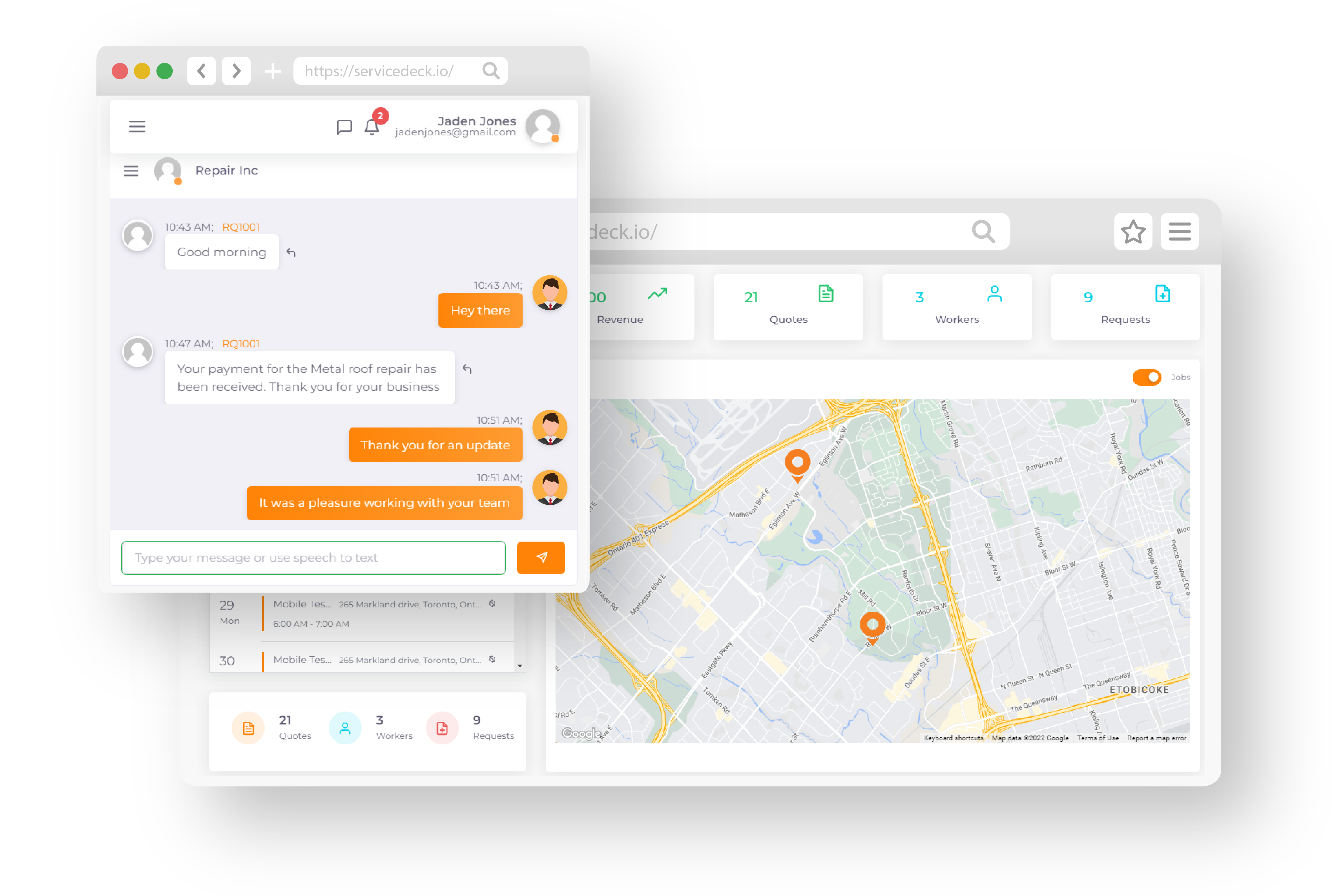In today’s fast-paced, increasingly digital world, remote troubleshooting has become a pivotal aspect of field service management (FSM). Encompassing the tools and techniques necessary for diagnosing and resolving technical issues from afar, virtual support has reshaped customer service, transforming the way businesses address customer needs.
The Role of Technology in Remote Troubleshooting
Emerging technologies are playing a pivotal role in the development and efficiency of remote troubleshooting. From the automation capabilities of artificial intelligence (AI) to the real-time data communication offered by the Internet of Things (IoT), these technologies have considerably enhanced the process of diagnosing and resolving customer issues remotely.
Artificial Intelligence:
AI has proven instrumental in streamlining the customer service process. Through the use of intelligent chatbots, AI enables immediate and personalized responses to customer inquiries. Moreover, predictive analytics powered by AI can foresee potential technical issues before they even occur, allowing for proactive problem-solving.
Internet of Things:
IoT devices serve as the eyes and ears in the field. By transmitting real-time data back to the central system, these devices enable technicians to monitor the health of systems and swiftly identify any anomalies or potential problems.
Enhancing Customer Support with Remote Troubleshooting

The implementation of remote troubleshooting has revolutionized customer support in field service management:
- Instant Accessibility: With remote troubleshooting, customers can access support instantly, bypassing the need to schedule a physical service appointment. This not only saves time but also provides convenience to the customers.
- Effective Issue Resolution: Real-time data provided by IoT devices can facilitate accurate and swift diagnosis of issues. AI tools can help identify optimal solutions, ensuring effective issue resolution.
- Proactive Support: The use of predictive analytics can identify potential issues before they become serious, allowing for proactive maintenance and preempting potential system downtime.
- Personalized Customer Interactions: AI-powered chatbots can provide personalized responses to customer inquiries, improving the overall customer experience. Furthermore, customer support can be tailored based on the analysis of past interactions and service history, providing a more personalized and efficient service.
- 24/7 Availability: With AI and IoT at work, customer support can operate around the clock. Whether it’s a minor query or a significant system error, customers can receive immediate assistance, regardless of the time.
By enhancing the efficiency and effectiveness of customer support, remote troubleshooting paves the way for a seamless customer service experience in the field service management sector.
The Benefits of Remote Troubleshooting
Opting for virtual support in FSM provides numerous benefits:
Cost Savings: Minimizing travel can significantly cut costs, including fuel, vehicle maintenance, and technician travel time.
- Improved First-Time Fix Rates: With real-time data and AI-driven insights, technicians can accurately diagnose issues and provide effective solutions promptly, increasing first-time fix rates.
- Increased Customer Satisfaction: Immediate response and rapid resolution of issues can significantly boost customer satisfaction.
- Scaling Service Operations: Virtual support enables businesses to extend their reach, serving customers across various locations without the need for physical proximity.
Key Components of Successful Remote Troubleshooting

Achieving effective remote troubleshooting relies on several key components:
- Integrated FSM Software: A comprehensive FSM system can centralize data, automate scheduling, and provide robust reporting capabilities, all critical for effective remote support.
- Skilled Technicians: Even with the most advanced technology, human expertise remains critical. Technicians must be trained to leverage new tools and adapt to remote troubleshooting protocols.
- Clear Communication Channels: Effective remote troubleshooting hinges on clear, consistent communication. Ensuring customers can easily report issues and receive updates is key.
- Robust Knowledge Base: A well-maintained knowledge base empowers technicians with historical data and valuable insights, guiding them towards optimal solutions.
Challenges of Remote Troubleshooting and Overcoming Them
Like any other process, remote troubleshooting is not without its challenges. However, these can be effectively mitigated:
- Technical Issues: Ensure strong, reliable internet connections and have a backup plan for when technical issues occur.
- Customer Reluctance: Educate customers on the benefits and security of remote troubleshooting to build trust and acceptance.
- Limited Hands-On Capability: Employ advanced technologies like AR and VR to virtually bridge the gap between technicians and the physical location.
The Future of Field Service: Remote Troubleshooting
Companies across industries are leveraging remote troubleshooting to improve their field service operations. For instance, in the IT industry, many businesses have incorporated AI-driven virtual support, enhancing the customer experience by resolving common software issues without needing an on-site technician.
The future of field service management is digital. As businesses increasingly adopt remote troubleshooting, they will continue to enhance their efficiency, cost-effectiveness, and customer satisfaction.
Final Thoughts
The transformative potential of remote troubleshooting in field service management is undeniable. With the right blend of advanced technologies, skilled technicians, and customer-centric strategies, businesses can revolutionize their service delivery and elevate the overall customer experience.


One Comment